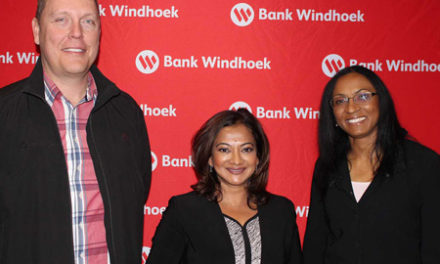
Personal finance mistakes to avoid in your 20s

Compiled by Allan Gray Namibia*
Very often, with the excitement of a new job comes the burden of learning about the costs of tax, medical aid and pension contributions. If you ask any of your elders, they’ll tell you about some common personal finance and investing blunders they made in their twenties. If you can avoid these, you’ll be in a better position to succeed financially in your 30s and beyond.
Mistake 1: Believing that you’re too young to concern yourself with retirement-related matters.
The reality is that you do need to think about saving for retirement, and the sooner the better. In your 20s, the idea of retirement may feel rather abstract. One way of making it real is to truly understand exactly how much you need to be saving for retirement and how the age when you start saving impacts this.
A simple fact that many don’t understand is that while your working life lasts approximately 40 years, the income you earn in those 40 years must provide for your needs, not only during the 40-year period but also, for a further 20 or more years that you could live as a pensioner. Therefore, the more you delay saving for retirement, the larger the proportion of your present-day income you need to put away for your needs during retirement.
Mistake 2: Not preserving your retirement savings when you change jobs.
Whenever you resign from a job—or if unfortunately you should be retrenched—you will typically have an opportunity to access any retirement funds that you had saved through your employer’s retirement or pension fund. Try not to cash in on these!
If you do not keep these funds in a retirement product, you essentially have to start saving for retirement all over again. Some people do, and then find themselves in the uncomfortable position of having to start saving even more of their income for retirement. The older you are when you start, the more money you will have to put away. Imagine having to save 40% to 60% of your income for retirement at a time in your life when your children are attending high school or completing tertiary studies! That is how much you would need to save if you started between 40 and 45!
However, if you find yourself in a position where you seriously need to make use of some of the retirement funds available when leaving your job, withdraw only as much as you really need, and avoid the temptation to take as much as you can. This will also help avoid being heavily taxed if you exceed Namibia’s allowance for tax-free withdrawal from pension funds.
Mistake 3: Relying too much on debt to meet present-day needs.
Very few of us can afford to fund the big and important things we value or want to pursue in life from our salaries alone, and this is where debt usually comes in. Debt isn’t necessarily a bad thing if it’s used appropriately, but the cost of servicing your debt can eat away at your ability to build wealth over the long term.
Debt can be useful, but it is important to understand your options and plan ahead, so that you can use time to your advantage and by earning interest rather than paying interest. When taking on debt, make sure it is for an investment and something that will actually give you benefits over time. As an example, some young people are tempted to use debt to fund a holiday; in such a case the holiday will be much more expensive than if they had saved beforehand. Unlike a property investment for example, a holiday doesn’t give you much benefit over time.
Debt allows you to borrow, at a cost, from the future to meet a present need, whereas investing allows you to borrow from the present to meet future needs and build wealth over time.
Mistake 4: Not talking to your family about money.
As well-intentioned as you may be, providing financial support to relatives can put a lot of pressure on young professionals. It is important to set realistic expectations about the level of financial support you are able to provide.
It is important to have open conversations with your loved ones about financial circumstances and expectations (both yours and their own) to ensure that everyone is on the same page and will understand the plan. This will also minimize the financial strain of unbudgeted costs that tend to arise.
Mistake 5: Going it alone.
Finances are very personal, and as such, we often feel it is wholly our responsibility to figure them out. While it is our individual responsibility, that doesn’t mean you should ‘wing it’ without help or that you can’t enlist the guidance of a professional.
A good independent financial adviser is not only going to help you set your financial goals but also to put a plan in place to achieve them. Aside from being open with your family about your circumstances, your financial adviser can support you most effectively when they understand your financial goals and the challenges you face in achieving them.
Be true to yourself.
Knowing yourself better means you are able to recognise your triggers and the kind of roadblocks that may hinder you from sticking to your goals. Consider whether any techniques that have helped you achieve success in other areas of your life, can be applied to achieve your financial goals. Perhaps you perform better when you have social accountability, so creating these plans with your partner might be all you need; or you may benefit from joining an investment club. Do what works best for you.
One of the most important financial truths is that, like so many facets of life, decisions we make in the present have an impact on our financial future. You hold the power today to influence how things will turn out. In your 20s, it’s important to understand just how valuable time is to your long-term financial goals and that in the context of investing, time, when you have it, is free. The earlier you start saving for your retirement, the less you need to save from your current income later on.
* Promotional article by Allan Gray Namibia adapted from an article by Nomi Bodlani, Head Strategic Markets Allan Gray.
For more information and assistance contact Allan Gray Namibia at [email protected] or visit www.allangray.com.na or call 061 221 103.












































